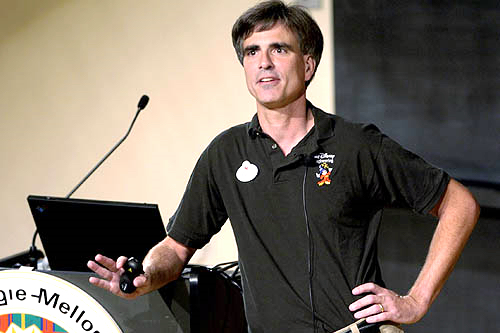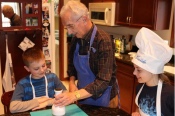Strange History that They Both Share
|
When I was very young and still in elementary school, my parents would go to the Jersey Shore for vacations. We stayed at seaside towns like Ocean City and Beach Haven. During our time at the shore, my dad would take me out on a small boat, and we would go crabbing. Crabbing was something about which I was more than capable of handling even though I was not even ten years old at the time. I enjoyed the experience of catching crabs.
If you are ever down at the New Jersey seashore, go crabbing. All that you need is a piece of string about five feet long and the head of fish. That is all. Tie the head of the fish to the string, through it overboard, and hold the other end of the string. Pull the string several times, and it will not be long before a crab has grabbed hold of the fish head. Just pull in the crab; it will not let go of the fish head with its pincher. Nowadays, you can get wire traps, which will achieve the same results. However, I am Scottish; the string is a lot cheaper than wire traps. Just writing about those times crabbing makes me want to go back to the Jersey Shore and go crabbing with Jack and Owen, my grandsons. Would they be excited pulling in crabs? In the meantime, while researching on the Internet, I happened upon an article about medical research regarding cancer and the relationship to crabs. While I am not a medical doctor, I am keenly aware of cancer having dealt with prostate cancer...successfully so far. Therefore, I do know much about cancer. However, I came across information about which I never knew. Hippocrates of Kos lived 2400 years ago on the Greek island of Kos just off the coast of present day Turkey. Hippocrates is considered the Father of Medicine in the Western world. He did a great deal of research on cancer, which he called kαρκινος (karkinos), which means in Greek, crab. That caught my attention. Hippocrates noticed that the malignant tumor was very hard to the touch; hence, he compared it with the shell of a crab, which is also very hard. Additionally, those suffering from cancer often complained about sharp pain in the affected area. He related the pain to that of a crab's pincher when crabs take hold of a finger of a person.
Aulus Cornelius Celsus lived in the first half of the first century AD. He wrote eight books under the general title: De Medicina (On Medicine). There is not much known about Celsus. However, he was not a medical doctor. Nevertheless, he did a great deal of research, which resulted in De Medicina. In addition, he used Hippocrates' term, kαρκινος and translated into carcino, the Latin term for the Greek word, crab. Galen of Pergamum was a Roman doctor and lived a century after Celsus. Today, he is known as the Father of Anatomy. He added to the crab/cancer issue by noting how the malignant tumor sent out tentacles, which radiated from cancer. These tentacles were like crab legs. Today, the medical professionals have adopted another Greek term, oncology. Oncology comes from the Greek word, ονκος (onkos), which means mass or tumor. It has been nearly a lifetime since I went crabbing with my dad along the Jersey Shore. At this end of my life, I am connecting the dots related to crabs. Interestingly, seven years ago, I dealt with prostate cancer...successful. Still another dot that I have connected is my love for any food containing crabmeat. This recipe for deviled crab is one of my favorite.
I got this recipe from myrecipes.com. I modified it only slightly.
Visit the Connecting the Dots page to read more about this topic.
Visit the The Last Lecture page to read more about this topic.
Visit the Dancing with Death page to read more about this topic.
Visit the "Campbell's Cooking Class" page to read more about this topic. 06/05/15 Follow @mountain_and_me |















